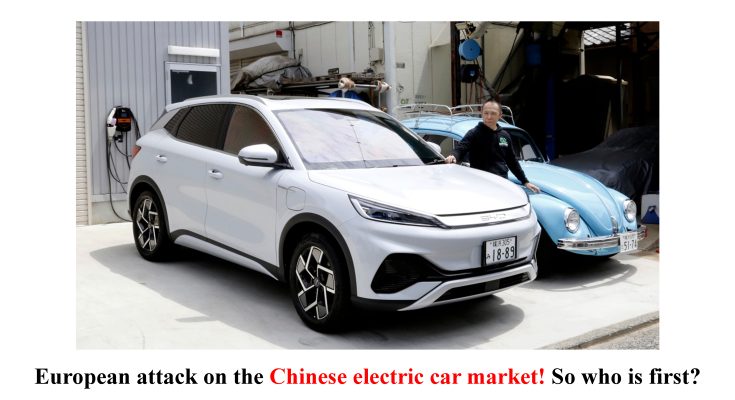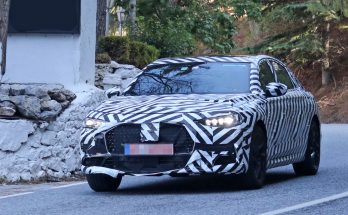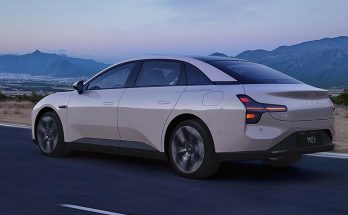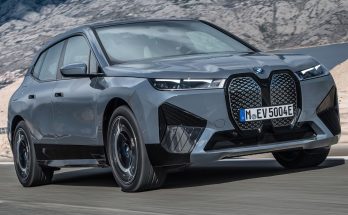Introduction to the Growing Electric Car Market in China
The electric car revolution is well underway, and China is at the forefront of this transformative wave. As urban landscapes evolve and environmental concerns rise, the demand for electric vehicles (EVs) continues to soar in the world’s most populous country. With its vast market potential, it’s no wonder that European automakers are setting their sights on China as a key battleground for dominance in the EV sector.
As these historic brands make their move into this lucrative terrain, questions arise: Who will seize the initiative? Which cars will capture consumer attention? The stakes are high as Europe aims to challenge China’s established players while navigating a complex landscape filled with fierce competition and unique challenges. Join us as we delve into this thrilling saga of innovation and ambition in the Chinese electric car market!
The Rise of European Automakers in China
European automakers are making significant strides in the Chinese electric car market. With China leading global EV sales, manufacturers like Volkswagen and BMW see immense potential.
These brands have begun to tailor their offerings specifically for Chinese consumers. They incorporate local preferences into design and technology, resulting in models that resonate with buyers.
Strategic partnerships with local companies also play a crucial role. Collaborations allow European firms to navigate regulatory landscapes more effectively while enhancing production capabilities.
Moreover, investments in innovation are ramping up. Companies aim to introduce cutting-edge features that appeal to tech-savvy drivers eager for sustainability without sacrificing performance.
As competition intensifies, European automakers demonstrate resilience and adaptability. Their commitment signals a new era where traditional automotive giants vie for dominance alongside homegrown talent in this dynamic marketplace.
Comparison of Top European Electric Cars Available in China
The Chinese electric car market is witnessing an impressive influx of European models. Brands like BMW, Mercedes-Benz, and Volkswagen are stepping up their game.
BMW’s iX3 stands out with its sleek design and advanced technology. It offers a smooth ride that appeals to urban commuters looking for style without compromising on functionality.
Mercedes-Benz has introduced the EQC, blending luxury with sustainability. This model boasts exceptional battery life and high-end features tailored for discerning drivers.
Volkswagen’s ID.4 takes a different approach by focusing on affordability while maintaining quality standards. Its spacious interior makes it a family-friendly choice in the competitive landscape.
Each brand is catering to unique consumer preferences, ensuring they’re not just part of the market but contenders shaping its future dynamics in China’s thriving electric vehicle scene.
Advantages and Challenges for European Car Brands in the Chinese Market
European car brands enjoy several advantages in the Chinese electric car market. Their strong reputations for quality and innovation resonate well with consumers. They often bring advanced technology, appealing design, and a focus on sustainability that attracts eco-conscious buyers.
However, challenges loom large. The competitive landscape is fierce, with local brands rapidly evolving and capturing significant market share. These domestic players offer lower prices while maintaining quality, making it tough for European automakers to compete.
Navigating regulatory hurdles can also be daunting. China has unique standards and policies that foreign companies must adapt to quickly or risk losing ground.
Moreover, establishing robust distribution networks takes time and investment—two resources that are crucial in this fast-paced industry.
Impact on Chinese Domestic Electric Car Brands
The entry of European automakers into the Chinese electric car market is shaking things up for local brands. With their established reputations and advanced technology, these companies are raising consumer expectations.
Chinese domestic brands now face intense pressure to innovate. They must enhance their designs and features to remain competitive. Many are investing heavily in research and development, looking to carve out a niche that resonates with eco-conscious buyers.
Moreover, the presence of European manufacturers could lead to increased collaboration opportunities within China. Local firms may partner with global giants for knowledge-sharing or joint ventures. This could elevate not just individual brands but the entire industry landscape.
However, challenges abound as well; price competition might become fiercer than ever before. Domestic players need strategies that highlight their unique selling points while adapting quickly to shifting consumer demands in this rapidly evolving market.
Current State of the Competition between Europe and China in the Electric Car Market
The competition in the electric car market is intensifying as European brands aggressively enter China. This dynamic landscape features established players like Volkswagen and BMW, alongside newcomers striving to carve out their niche.
Chinese manufacturers are not sitting idle. Brands such as BYD and NIO have rapidly innovated, often leading in technology and affordability. They understand local preferences better than anyone else.
European automakers bring a legacy of engineering prowess but face challenges adapting to Chinese consumer habits. Their premium pricing strategies struggle against competitively priced domestic models that appeal to the masses.
Regulatory hurdles further complicate matters for Europeans hoping to expand their footprint in this lucrative market. Yet, partnerships with local companies may offer pathways for success while navigating these complexities.
As both sides ramp up production and marketing efforts, the rivalry promises exciting developments for consumers eagerly awaiting advanced electric vehicles on the road.
Predictions for the Future of the Electric Car Market in China and Europe
The electric car market is on the brink of transformation. As European automakers invest heavily in their electric vehicle (EV) strategies, they are poised to challenge established norms within China’s dynamic landscape.
Many analysts predict that the competition will intensify as both regions ramp up innovation and production capabilities. With Europe focusing on sustainability and advanced technology, Chinese domestic brands may need to elevate their game. The push for greener solutions will likely lead to a surge in research and development efforts from all players involved.
Moreover, consumer preferences are shifting rapidly. As awareness around environmental issues increases, buyers are becoming more discerning about the brands they choose. This trend could favor those European manufacturers who emphasize eco-friendly practices alongside cutting-edge designs.
However, challenges remain for European automakers entering this bustling market dominated by local giants like BYD and NIO. Adapting to local tastes while remaining competitive on pricing represents a significant hurdle.
As we look ahead, it seems clear that collaboration might play an essential role too—joint ventures between Western companies and Chinese firms could unlock new potential pathways for growth amidst fierce rivalry.
The next few years will prove crucial in determining how these dynamics unfold within the realm of electric vehicles across continents. The race is truly just beginning; anticipation hangs thick in the air as both sides prepare for what comes next in this electrifying contest.



